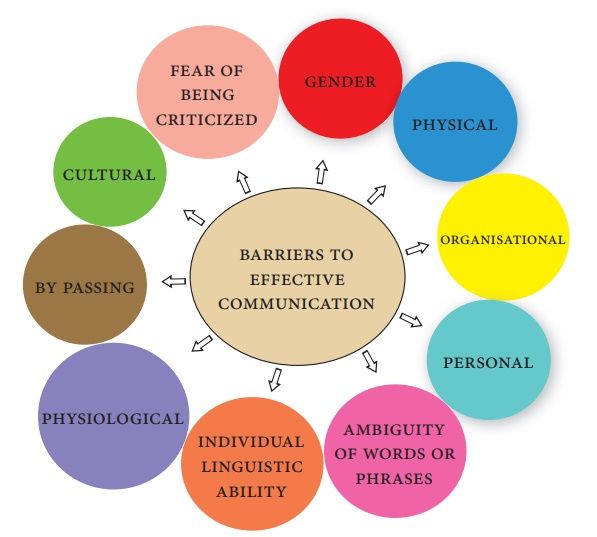How to Improve Communication Skills: Tips for All Ages

Table of Contents
- What Are Communication Skills
- Why Are Good Communication Skills Important
- Top 10 Strategies to Improve Communication Skills
- Barriers to Effective Communication: How to Overcome Them
- Common Communication Barriers
- How to Overcome Them
- Communication for Leadership and Team Collaboration
- The Power of Non-Verbal Communication
- How to Improve Non-Verbal Communication
- Emotional Intelligence in Communication
- How Communication Shapes Problem Solving & Decision Making
- How PlanetSpark Can Help You Improve Communication Skills
- Communication Skills for Kids
- For Working Professionals
- Daily Exercises to Boost Communication
- Common Mistakes to Avoid
- Books to Improve Communication
- Conclusion
- FAQs
In today’s fast-paced, connected world, strong communication skills are not just an advantage - they are essential. Whether you're a student, a professional, or a parent helping your child grow, the ability to communicate, confidently, and persuasively can shape your success in academics, careers, and relationships.
So, how can you improve communication skills - especially in English? This comprehensive guide breaks it down into actionable tips, real-world examples, and proven techniques backed by educational research and training methods like those used at PlanetSpark.
What Are Communication Skills

Communication skills refer to your ability to send, receive, and interpret messages effectively. This includes:
Verbal communication (speaking and listening)
Non-verbal communication (body language, facial expressions)
Written communication (emails, texts, reports)
Visual communication (charts, graphs, visuals)
Digital communication (online chat, video calls)
In short, it’s not just about what you say - but how you say it, and how well others understand it.
Why Are Good Communication Skills Important
Build confidence in personal and professional settings
Create better relationships at home, school, and work
Improve your chances in interviews and promotions
Perform better in school presentations and public speaking
Enhance your online presence and collaboration
Learn how PlanetSpark helps you communicate with clarity and purpose
Top 10 Strategies to Improve Communication Skills
1. Practice Active Listening
Good communication starts with good listening. Focus entirely on the speaker, ask follow-up questions, and show you’re engaged. Avoid interrupting or thinking about your reply while others are talking.
Tip: Nod, make eye contact, and paraphrase their points to show understanding.
2. Expand Your Vocabulary
Use words that fit the context. Having a wide range of vocabulary allows you to speak with precision and confidence. Read books, newspapers, and blogs regularly to absorb new words naturally.
To know more, visit: PlanetSpark’s communication blog on kids
3. Speak Clearly and Slowly
Rushed speech can sound nervous and unclear. Practice speaking slowly and enunciating your words. This ensures your message is understood and adds authority to your voice.
4. Record Yourself
Hearing your voice played back helps identify flaws in tone, pacing, or grammar. You’ll be able to track improvement and correct filler words like “um,” “like,” or “you know.”
5. Practice Written Communication
Emails, essays, and social media posts help develop structure and flow. Start a journal or blog to express thoughts and improve organization and clarity.
6. Use Positive Body Language
Your body speaks, too! Maintain eye contact, open posture, and use hand gestures wisely. Avoid crossing your arms or looking away while speaking.
7. Join Group Discussions or Debates
Interacting with others in structured conversations builds both fluency and confidence. It also helps you learn to articulate your points and respectfully disagree.
Want to level up fast? Try PlanetSpark’s expert-led speaking classes
8. Watch and Learn from Great Communicators
Watch TED Talks, interviews, or leaders who inspire you. Observe their pacing, tone, and storytelling techniques. Mimic their structure to improve your speaking style.
9. Read Aloud Daily
This builds fluency, pronunciation, and confidence - especially when learning in English. Choose interesting material and read it aloud for 10 -15 minutes each day.
10. Get Professional Feedback
Sometimes, you need expert guidance to fix what you can’t see. Coaches at PlanetSpark provide personalized, real-time feedback to help you grow as a speaker, writer, and communicator.
Barriers to Effective Communication: How to Overcome Them

Even if you have strong language skills, communication can still fail if common barriers aren’t addressed. Recognizing and overcoming these challenges is essential to becoming a truly effective communicator.
Common Communication Barriers
Language and Jargon – Using complex words or unfamiliar phrases can confuse listeners.
Lack of Focus – Distractions, multitasking, or unclear purpose disrupt clarity.
Cultural Differences – What’s polite or effective in one culture may be inappropriate in another.
Emotional Interference – Stress, anxiety, or anger can block clear expression or reception.
Poor Listening Skills – Half of communication is listening, and failing here leads to misunderstandings.
How to Overcome Them
Simplify language without sounding robotic.
Be mindful of tone and non-verbal cues.
Practice active listening.
Pause before reacting emotionally.
Adjust your communication style based on your audience.
At PlanetSpark, our educators help students recognize and work through these real-world communication barriers through live simulations and feedback.
Communication for Leadership and Team Collaboration
Strong leaders aren’t always the loudest - but they’re always the clearest communicators.
Leadership Communication Skills Include:
Giving clear instructions
Inspiring with vision and tone
Offering feedback constructively
Facilitating collaboration among teams
Whether you’re leading a school project or heading a corporate meeting, your communication impacts trust, productivity, and outcomes.
Collaborative communication includes:
Sharing ideas openly
Acknowledging others' inputs
Asking the right questions
Being flexible in discussion
PlanetSpark’s group activities and debate-based learning help students develop collaborative leadership skills at an early age. Learn to lead with words, not just titles.
The Power of Non-Verbal Communication
Over 70% of communication is non-verbal. This includes body language, eye contact, gestures, facial expressions, and tone of voice.
Examples of Non-Verbal Cues:
Maintaining eye contact = confidence
Crossed arms = defensiveness or discomfort
A warm smile = friendliness and openness
Nodding while listening = active engagement
How to Improve Non-Verbal Communication
Practice in front of a mirror or record yourself
Be aware of your posture and expressions
Match your non-verbal cues with your message
PlanetSpark helps students become visually expressive speakers, which is key in interviews, presentations, and public speaking.
Emotional Intelligence in Communication
Emotional intelligence (EQ) is the ability to recognize, understand, and manage your emotions- and those of others. It's a key driver of effective communication.
High-EQ Communicators:
Stay calm under pressure
Respond rather than react
Show empathy and understanding
Build rapport and resolve conflict
Emotional intelligence enables you to navigate complex conversations with sensitivity and confidence. It’s especially valuable in high-stakes settings like interviews or teamwork under stress.
At PlanetSpark, we integrate emotional awareness into communication training to build well-rounded communicators - not just fluent speakers.

How Communication Shapes Problem Solving & Decision Making
Whether you’re choosing a college, solving a classroom dispute, or leading a business strategy, how you communicate during decision-making matters.
Good communicators:
Clarify problems effectively
Listen to all perspectives
Ask insightful questions
Express ideas logically
Agree faster
Communication isn't just about delivery- it's about helping others understand, align, and act. That’s what turns a talker into a problem solver.
How PlanetSpark Can Help You Improve Communication Skills
At PlanetSpark, communication isn’t taught - it’s practiced. Our courses are designed to make learners fluent, expressive, and confident in both academic and real-life situations.
Why Choose PlanetSpark?
Live 1:1 training with expert educators
Custom programs for kids, teens, and adults
AI-based fluency feedback
Public speaking, grammar, storytelling, and vocabulary in one course
Master communication with expert-led online sessions. Improve English Communication with PlanetSpark.
Communication Skills for Kids
It’s never too early to start. Building communication skills in children helps them:
Perform better in school
Express emotions effectively
Handle peer pressure
Participate in class confidently
Parents - help your child grow into a fluent, expressive learner with PlanetSpark's Communication Skills for Kids
For Working Professionals
Want to ace that team presentation or client call? PlanetSpark’s spoken English and communication courses for adults cover:
Business English
Pitching ideas
Email etiquette
Conflict resolution
Interview mastery
Visit the link to improve your communication in the workplace
Daily Exercises to Boost Communication
Record a 2-minute video of yourself speaking about your day
Read the news aloud for 10 minutes
Pick a topic and explain it to a friend in under 1 minute
Write one paragraph on a trending topic
Avoid filler words in conversations for a day
These habits can transform your fluency, clarity, and comfort level in just weeks.
Common Mistakes to Avoid
Using complicated jargon unnecessarily
Not listening or interrupting often
Speaking too softly or too quickly
Relying on filler words
Being overly casual in formal conversations
Self-awareness is the first step to better communication. Give your child the confidence to speak up. Explore communication tips for kids.
Books to Improve Communication
How to Win Friends and Influence People by Dale Carnegie
Talk Like TED by Carmine Gallo
The Quick and Easy Way to Effective Speaking by Dale Carnegie
Words That Work by Frank Luntz
Crucial Conversations by Kerry Patterson
Conclusion
Communication is more than grammar and vocabulary- it's the ability to connect, lead, and succeed. Whether you're a student giving your first speech, a parent helping your child gain fluency, or a professional aiming to rise higher, improving communication is the smartest investment you can make.
Let PlanetSpark help you be heard, be understood, and be unforgettable.
FAQs
1. How long does it take to improve communication skills?
Ans. It depends on your starting level and practice frequency. With daily effort and expert feedback (like at PlanetSpark), visible improvement can happen within a few weeks.
2. Can children also improve their communication skills early?
Ans. Yes! Kids between 7–14 learn fastest. Enrolling them in structured courses can significantly boost vocabulary, speech clarity, and confidence.
3. What are the best ways to practice communication daily?
Ans. Read aloud, record yourself speaking, join discussions, and get feedback. Use mobile apps and online platforms like PlanetSpark to track progress.
4. Is PlanetSpark’s program only for kids?
Ans. No! PlanetSpark offers programs for students, working professionals, and adults who want to improve English fluency and professional communication.
5. Are communication skills and spoken English the same?
Ans. Not exactly. Spoken English is one part of communication. Communication includes listening, writing, body language, tone, and overall clarity of message delivery.
Personalized Communication Report
Record a video to get a AI generated personalized communication report for your child

Hi There, want to try these
tips for your child with
LIVE with our expert coach?
Let's check your child's
English fluency
